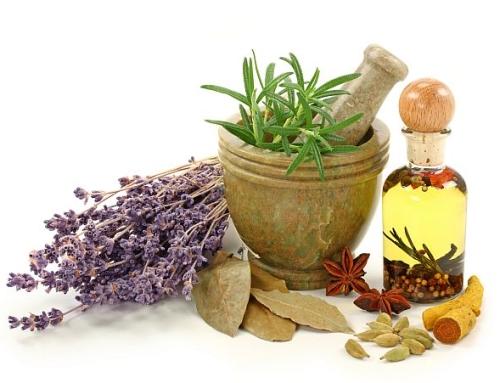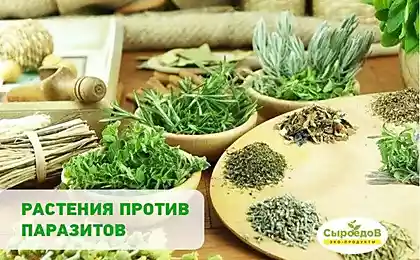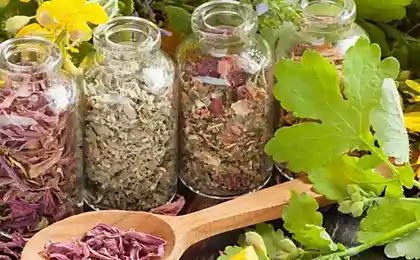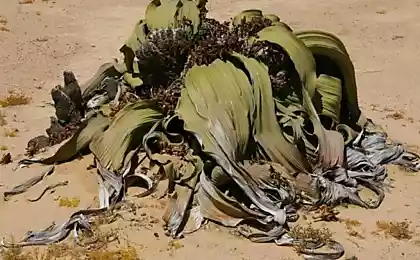1131
ANTIPARASITIC plants.

Air
It has a strong antiparasitic properties, which shows in the organs of the nervous system (plasma, bone marrow, the vocal apparatus), the reproductive system, liver and pancreas. Expels parasites from the head, relieves sinusitis, epilepsy, deafness, hysteria, memory loss. Airom can be cleaned and decontaminated water.
Marshmallow
Used root. Antiparasitic has a strong effect on the single-celled parasite found in blood, plasma, muscle, brain, nervous tissue and genitals. Effectively it acts on the parasites in the respiratory, urinary, digestive and nervous systems. The spectrum of the harmful effects of parasites wide - from protozoa and viruses before multimeter tapeworm. Marshmallow has a high content of silicon - element of life.
Basil
Antiparasitic properties are similar to Althea. Very handy when cooking use the powder of dried grass.
Barberry
Antiparasitic activity enjoyed by all parts of the plant. The most frequently used root. The dried and ground barberry can be added to salads, first and second courses. It is damaging to the liver parasites. It improves the filtering capacity of the liver, promotes the breakdown of fat, cleansing the blood.
Carnation
Spectrum antiparasitic action is wide - round, belt and flat worms, protozoa, bacteria, fungi and viruses. Antiparasitic effect cloves appears in plasma, brain, in the nervous and reproductive systems. Application of clove at pharyngitis, sinusitis, laryngitis, dental pain and impotence, helps the body get rid of parasites and has a healthy effect. Carnation literally disinfects the lungs, stomach and lymph system.
Pomegranate
Even after heat treatment pomegranate juice obtained by cold pressing, Trichomonas kills oral bacteria, parasites, fungi - and Penicillium candida. Pomegranate acts against parasites in all organs and systems of the human body.
From pomegranate prepare infusions, decoctions, the powder of pomegranate seeds make butter. Products from pomegranate effortlessly blends with cinnamon and clove fruit.
Elecampane
Use the root of the plants and flowers. Antiparasitic effect is manifested in the respiratory, digestive and nervous system, all other organs, except the male reproductive system. Inula purifies blood from parasites and light stimulates detoxification and regeneration of lung tissue. Elecampane is combined with ginger, cardamom, cinnamon, marshmallow and comfrey.
Oregano
Used aboveground part of plants collected during flowering, in the tea infusions and fees. It has antiparasitic effect on bacteria and protozoa.
St. John's wort
It is often used in training camp together with oregano. Its antiparasitic properties are mainly in the organs of gas exchange, respiration system.
Strawberries
Leaves of the plant are used. Strong means against parasites of the urogenital system.
Willow
Used tree bark. Exhibits antiviral activity. In practice, used as a painkiller and antifebrile.
Ginger
It uses the rhizome of the plant. It is known for its broad spectrum antiparasitic effect on helminths, viruses and fungi. Detrimental effect on intestinal parasites and respiratory diseases.
Hyssop
Since ancient times known a deep cleanser. Hyssop leaves in a small amount can be added to salads, first and second courses. Hyssop - a strong remedy against worms and fungi.
Calendula
Its bactericidal effect has long been known. Use color Plants for the preparation of charges for tea. Chopped fresh or dried flowers can be used for cooking. Antiparasitic effect of a wide spectrum.
Kalina
Used berries, branches, leaves the plant. Antiparasitic activity has on bacteria, protozoa and viruses.
Cardamom
Use seeds. Antiparasitic properties appear in the digestive, respiratory and nervous systems, as well as the circulatory system. Detrimental effect on many species of parasites - from fungi and viruses to tapeworms.
Cardamom - the perfect cleanser for the stomach, small intestine and lungs. It acts very gently. Everywhere, and has long been used for food, it is a mild antiparasitic agent for children. It goes well with fennel.
Cilantro (coriander)
Its foliage and seeds are used everywhere. A wide range of anti-parasitic properties.
Cinnamon
It does not lose its property of antiparasitic and after heat treatment.
Nettle
Collect it can be from early spring to late May. Antiparasitic properties rather wide range - from parasites skin, hair, to parasites in the lungs and gut.
Watercress (perechnik, podhrennik)
Leaves of plants have a taste of horseradish and mustard, exhibit antiparasitic properties in a wide range and are known for their Phytoncidic activity.
Sesame
Its seeds contain oil with a strong antiparasitic effect on the parasites of the skin and subcutaneous tissue. Sesame seeds are used in food with a manifestation of anti-parasitic properties of a broad spectrum of action - in the respiratory, digestive and urogenital (women) systems. The strongest antiparasitic effect have black seeds.
Turmeric
Potent broad spectrum antiparasitic activities (of parasites head to skin parasites). The powder from the dried rhizome is widely used for cooking. He makes them taste peculiar, exotic and informs them antiparasitic properties.
Laurel
The leaves and seeds contain aromatic oils with strong antiparasitic properties. As a spice used laurel absolutely all first and second courses.
Frankincense
It has properties similar to those of myrrh. He detrimental effect on the parasites of the respiratory system and brain.
Burdock
Use the root of the plant. The parasite found in the blood, respiratory, urogenital and lymphatic systems. In the fresh form can be used in food in dried form serves as an excellent addition to the herbs and spices for the first and second courses.
Lucerne
Use herbs. Because young plants can make salads. For use throughout the year may be formulated and the powder of dried herbs therefrom. It can be used as an antiviral product. Lucerne exhibits diuretic and antifebrific effect, kills parasites in open wounds. It combines the collection of grass with dandelion, nettle, parsley, horsetail.
Raspberry
Used berries and leaves. Young raspberry leaves quite delicate and can be used as food. Leaves and raspberries have antiparasitic effect on the parasites of the circulatory system, digestive system and .... Berries, cooked with sugar, lose their antiparasitic properties.
Mother and stepmother
Leaves mother and stepmother - a great supplement to salads. It has antiparasitic activity parasites in the circulatory system.
Juniper
Leaves and fruits juniper contain aromatic oil, developing antiparasitic properties. The crushed fruit and leaves of juniper can be added to salads, first and second courses. The main impact properties of juniper occur when exposed to larvae, viruses and fungi that live in the respiratory tract and is activated when the organism overcooling.
Field Mint, lemon balm (lemon mint, not peppermint)
Antiparasitic properties are parasites in the respiratory tract and urogenital system.
Dandelion
Gather in May and June. Exhibits potent antiparasitic properties in the circulatory system, as well as its filter - the liver and kidneys.
Comfrey
Used root and leaves of the plant. Comfrey antiparasitic action is manifested in the blood, muscle, brain, nervous system, most parasites it acts on the respiratory system. Comfrey is considered a powerful tool, regenerating tissue bodies eaten by parasites.
Pepper red burning
Use fruit. Strong antiparasitic effects of red hot pepper has long been known. He expels parasites from the digestive organs; respiratory system, kills them in blood. Almost all the parasites that live in these systems - from viruses to large tapeworms and fungi - can not withstand the attack of red pepper.
Black pepper, allspice, cayenne
The fruits are used as a spice. Essential oils are the fruits of pepper show, antiparasitic action in the digestive system, the respiratory system and circulatory organs.
Black pepper - one of the most powerful products that destroy the worms and fungi in the intestines. Oil infusion of black pepper can be instilled into the nose for the recovery of the nasal mucosa and control of worms in the brain. contributes to the destruction of the parasites that cause boils and erysipelas, kills the herpes virus. Mixed with honey, strong effect on fungi and worms in the lungs.
Parsley
It uses the seed, root, leaves of the plant. Parsley antiparasitic effect manifests itself in the blood, muscle, plasma. The most powerful anti-fungal and protivobakterialnoe action it takes in the urogenital and digestive systems. From it you can prepare infusions (grass and seeds), herbal teas (from the root), constantly adding to the food fresh and powder of dried herbs and roots. Products of parsley are particularly effective on parasites activated by cooling the body and fatigue. Fresh parsley juice (2 tsp. In the morning on an empty stomach) - excellent antiparasitic agent for trichomoniasis and chlamydia.
Tansy
Tansy is used in the treatment of worms. External application - is used to treat scabies, fleas and lice. It should be remembered that the tansy is a toxic plant and should comply with the dosage. In the case of parasites of the digestive tract, amenorrhea, and nausea use the infusion of the flowers of tansy. One teaspoon crushed dried plants pour one cup of boiling water and leave under cover for about 15-20 minutes. After this time, a mixture of strain and drink throughout the day in divided doses.
Plantain
Only the young, tender leaves, which must be collected in the first half of the summer. Known strong influence on pyogenic flora and parasites found in the blood.
Mugwort
Used aerial part - grass. Antiparasitic effect is manifested in the circulatory system, digestive, respiratory, urogenital (women) and nervous systems. The range of activities is quite wide, round and tape worms, bacteria, protozoa, fungi and viruses of many species. Excellent tool - a decoction of wormwood, including in the collection of grass (bring to a boil and infuse); and a powder of dry grass.
Wormwood can be used even during pregnancy: it strengthens the fruit of helping the placenta to filter tiny parasites: Leptospira, Toxoplasma, chlamydia.
Wormwood can be used together with ginger and mint.
Rhubarb
Main antiparasitic effect is on parasites excretory and digestive systems. Rhubarb and dishes made of it (infusions, jelly, powders), kill hepatitis viruses, dysentery bacillus, many species of fungi, pyogenic culture. By its action on the intestinal parasite rhubarb is similar to flax seed.
Rose
Use colors plants with a wide spectrum of antiparasitic activity. Rose essential oil is detrimental to fungi, for many kinds of worms.
Rose petals, both fresh and dry, you can push in honey or water to obtain rose water. Antiparasitic effect rose manifested in the circulatory system, urogenital (women) and nervous systems.
Chamomile
A wide range of actions on the parasite - from large tapeworm to the hepatitis B virus. Antiparasitic effect is digestive, respiratory and nervous systems.
Sandal
Antiparasitic effect is manifested in the circulatory system, digestive, respiratory and nervous systems. Acts detrimental to the simplest migrating blood larval parasites in the tissues of the lungs, urogenital system (kills chlamydia and trichomonas), kills the parasites of the skin, the parasites penetrate into the nervous system (shingles), has gonorrhea, herpes and other viruses.
Plum
Use the inner surface of the bark. Antiparasitic effect is manifested in the nervous, digestive, respiratory system, circulatory system.
Plum bark preparing decoctions, syrups (act on the parasites in the lungs), and powders. The crust plum present prussic acid, which cleans parasites from the lungs and lymph system, and bitter almond and apricot kernel oils are suppliers that have regenerative effect on tissue parasites eaten. Irritation (cough, bronchitis, whooping cough, bronchial spasms and palpitations) stops. Extracts from the bark of plum, taken by mouth, eye clean vessels.
Licorice
Antiparasitic effect is manifested in all tissues of the human body: the nervous system, in the digestive, respiratory and urogenital systems.
As antiparasitic agent licorice effective against parasitic infestations in the intestines, with parasites in the lungs (cough, bronchitis, sore throat, laryngitis, ulcers - a consequence of the migration of the larvae of parasites with the blood) with cystitis - parasitic lesions of the urogenital system (painful urination). < br />
Yarrow
Antiparasitic effect is manifested in the circulatory system, respiratory and digestive systems. Used by herpes viruses, protozoa (chlamydia and trichomonas), pyogenic bacteria species to the flat and round worms. It goes well with peppermint (for women), Melissa (for males), sage and chamomile.
Dill
Use the leaves, stem and seeds. Effectively and detrimental effect on the parasites in the digestive system, liver, and pancreas, in the urogenital system, skin, circulatory system. Dill oil kills fungi, pyogenic infection.
Fennel
Antiparasitic properties are manifested in the digestive, urinary and nervous system. Fennel seeds take 1 tsp. After eating.
- A mixture of fennel seeds, cumin and coriander (1: 1: 1) helps digestion, banishing the parasite from the intestine.
- Seeds of fennel and coriander (1: 1) to take food for the control of parasites in the urinary system.
- Fennel seeds help cleanse parasites in the tissues of the breast and increasing lactation in nursing mothers.
Horsetail
Horsetail has a strong effect on the parasites in the respiratory organs and the urinary system (male and female). It helps even when sexually transmitted diseases. This blood-purifying agent. Horsetail - media silicon - element of life. It strengthens the nervous system and bones. Adsorbing the viruses (influenza, hepatitis and other).
Garlic
Antiparasitic effect is manifested in all the organs and systems of the human body. The range of effects of garlic is very wide - there are no parasites, which he had failed to destroy.
Sage
Antiparasitic properties of sage manifests in the respiratory organs, circulatory system, digestive and nervous systems. Detrimental effect on different types of parasites - viruses, hepatitis; protozoa and bacteria; flat, round and tape worms, numerous groups of fungi.
Echinacea
Antiparasitic properties of Echinacea are shown in the circulatory system, lymphatic and respiratory systems. In the East, echinacea is referred to plants exhibiting antiviral, antibacterial, antiseptic, analgesic, and anti-fungal properties antihelmintic.
























